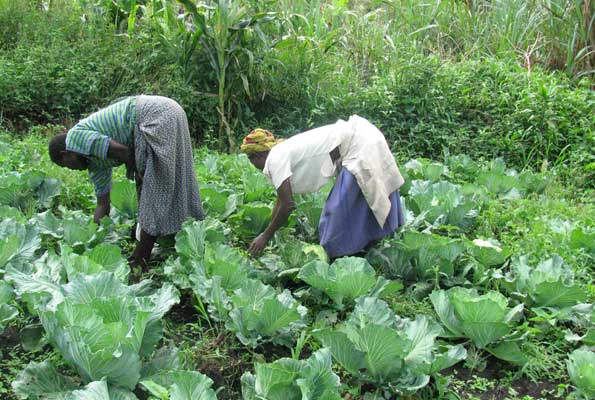
Uganda’s economy grew steadily on an average of 7% per annum for the two decades during 1990-2010. This performance was exceptional and the country won the plaudits of many a commentator and was highly regarded as one of the best performers in the world. However, during years 2011- 2014 and thereafter this rate slowdown to an average of 5.5 % per annum.
The slowdown in the growth has been attributed to both internal and external factors. Climate change has been one of the internal factors that continue to undermine economic performance. It should be noted that more than two thirds of Ugandans (80%) are engaged in agricultural as a primary source of livelihood. The sector is also a major source of export revenues.
As such, a shock to agricultural production not only affects the basic livelihoods of majority of Ugandans but also reduced foreign exchange earnings which monies in the absence of which the country is contained to meet its import bills and external debt service obligations. The country is currently facing a severe food crisis that has affected most districts. Districts in Eastern and North East Uganda have been particularly affected.
Food prices have consequently been rising steadily over the last six months due to the effects of a debilitating drought that ravaged the country and severely affected agricultural production. Data from the Uganda Bureau of Statistics indicate that food prices inflation has increased from 14.5 percentage in January 2017 to 21.6 percentage in April and is expected to continue rising in short run. Consequent upon the food security concerns, a section of honourable members of parliament requested the government to declare a State of emergency in the country in April 2017.
Indeed, the media is awash with stories of severe malnutrition and even death due to famine and increasing food prices. These negative occurrences due to Climate change could undermine Uganda’s economic performance. Already, Uganda’s economic performance has been challenged with declining growth patterns across all sectors. The agricultural sector in particular has suffered various shocks with implications for food security and export performance.
Indeed, the Bank of Uganda has revised downward the expected country’s growth trajectory from 5 percentage points in 2016 to about 4.5 percentage points. Agricultural output per capita has been mostly negative over the past five years– implying that if corrective actions are not urgently taken, Uganda will struggle to feed its own population in the medium term. This clearly explains the positive inflationary trend particularly in food crops. The annual headline inflation for the year ending April 2017 increased to 6.8 percentage points compared to the 6.4 percentage points for year ending from March 2017.
This was due to annual food inflation rising to 21.6 percentage points from 10.8% in December 2016, in part reflecting the drought episodes of 2016 brought about by Climatic changes. Pests and disease related attack such as army worm that is currently ravaging many parts of the country tend to follow periods of long drought. On average, 800,000 ha of crops are destroyed annually by climate related effects resulting into losses exceeding USD$ 47m. Yet reduction in food production has so many detrimental effects not only food security and nutrition but also on general growth and school attendance for young children.
Uganda’s economy and the wellbeing of its people is tightly bound to climate and therefore continue to be highly vulnerable to climate change and variability. Climate change has proved to halt or reverse the country’s development trajectory. This has been realized through increased food insecurity; shifts in the spread of diseases like malaria; soil erosion and land degradation; flood damage to infrastructure and settlements and shifts in the productivity of agricultural and natural resources and astonishingly the poor and vulnerable in rural areas feel its impacts the hardest.
Thus, while aspiring for the middle income status by 2020, climate change mitigation measures should be at the centre of policy making.












